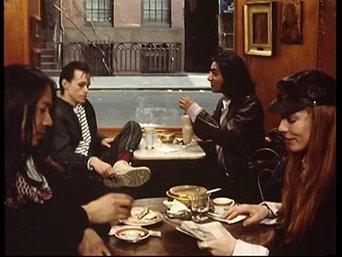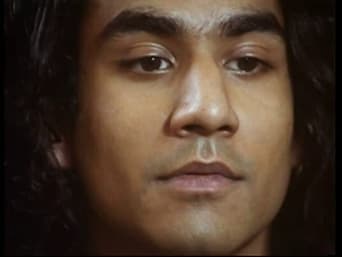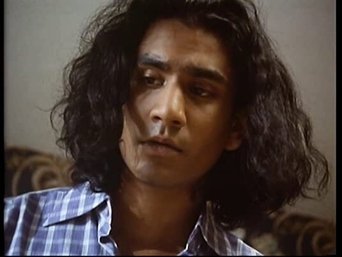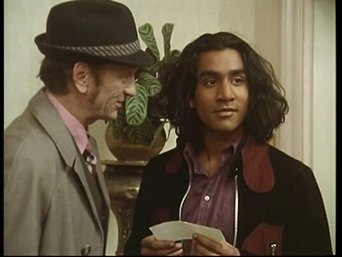Dr Jacques COULARDEAU
A surprising series from the BBC that comes to us from the rather distant time of 1993, but that speaks of the 1970s, the time of punk and the beginning of Margaret Thatcher who was already out when the mini series was produced. And they bring it out in 2007 in the DVD format. At last some may say. These time lags are very interesting because the meaning of the story is completely different according to the time you stand in. At the time of the arrival of Margaret Thatcher, the National Front was a real danger, and the mini-series shows it quite well and it is Margaret Thatcher who thwarted this National Front's ambition completely and utterly by recuperating their votes. It was a time when the left thought along the narrow line of an old model, that of the communist inspired unions, particularly the mineworkers' union, and of the Labor left of Tony Benn, the aristocrat turned a strict socialist. And they needed to be woken up to reality and they were by Margaret Thatcher again. They had to realize the old more or less violent and always intimidating methods were wrong and that the system of the free market economy was not collapsing at all because market economy was not, still is not and will certainly not be collapsing, even if its management is changing and will be changing maybe towards a more controlled, smooth and just functioning. The film looks at the extremely crucial issue of the time: the integration of the massive immigration from South Asia, Pakistan, India and Bangladesh. It considers this movement from a mixed point of view. First of all the point of view of the immigrants themselves, and particularly one young man who is the son of an Indian man and an English woman. His vision is always divided because he is mixing with people from both communities. It shows both his very Indian approach of personal relations that takes sex for what it is, nothing much except some kind of relaxing way of meeting with other people. Then the orientation is not important at all. But at the same time he desires some deep sentimental and emotional commitment and that runs in conflict with the English approach of things that more or less considers commitment like a downfall, a fault, a flaw in the free texture of life at the time. Since he is not an opportunist he ends up stepping out of a group in which sex was some kind of payment for a career, and since his profession is acting, that leads him to some kind of rather aloof position though all the more chased after because he appears hard to catch. At the same time we have the point of view of the white actors and directors who want to give Indians their chance to be well represented on the stage but then these Indians run into the African blacks who do not have the Indian distanciation (the Blacks are not beige enough as this young man says) and who consider a humorous discourse about Indian immigrants to be yielding to the white representation a society they essentially see as racist is imposing onto them. If you add to that the punk music of one of these white friends of the main actor's you have the full picture. This punk movement was definitely on one hand an extreme and excessive denunciation of white fascism but it also led at the time to the antagonistic movement of the skinheads who were racist and violent. In other words that was a time when things were very volatile and changing too fast for anyone to know which way they were going. That was the time of the squatters and the Claimants' Union. Strangely enough though most of these claimants were whites who wanted to use the social protection that had been set up after the war and up to the end of the 60s to live in poor but decent conditions, with no regular profession but plenty of time to prop up all kinds of protest movements. I remember the squats of the White Chapel area and the punk concerts of the Marquee and the Roundhouse of these mid and late mid 70s. That was a time worth living and that is a time worth remembering. This miniseries gives us a fair picture of what could today inspire us slightly more: there is no future for any country and the people of those countries if there is not a fair dose of freedom, diversity and hard work.Dr Jacques COULARDEAU, University Paris Dauphine, University Paris 1 Pantheon Sorbonne & University Versailles Saint Quentin en Yvelines
wuthering
Then again, why should it be. Those who watch this and comment about it being vacuous, etc., did not watch the same film I did. Of course the film is less detailed than the novel. Of course there's going to be some "stereotyping". But have you ever seen a film that didn't? This film gave voice (in the body of beautiful Mr. Andrews) to a young emerging culture. That of the Indo-Brit who was born in England, not India. Trying to fit in, yet knowing the conservative party/culture at the time would not let them.
While not meant to be hysterical, this film has enough laughs to help you make it through its 220 minutes. It has enough passion to help you understand the feelings. And it has enough meaning to make you understand that not all things (causes, beliefs) can be folded neatly and packaged away for American viewers.Watch this film. You will not want your time back. Cheers.
Frimmin'
Having enjoyed the quirky little "My Beautiful Laundrette," I was most disappointed by "The Buddha of Suburbia." The film is a disaster from beginning to end, and has the feeling that length was the sole purpose, as one sometimes feels when reading less-inspired 19th-century novels whose authors were paid by the word.There are nearly an hour's worth of shots of people walking up stairs, crossing streets, and standing silently which would have been edited by any other director. There is truly no reason in the world for it to have gone over two hours. Furthermore, the production is shoddy. Lighting is bad, lines are mumbled, blocking awkward.There is no "plot" per se, no shape to this massive mess. There are clues that it goes from the beginning to the end of the 70s, yet the events feel more like a three-year span.The subject simply appears to be the myriad ways in which the people in young Karim's life find to ruin their happiness. Their confusions range from hopeless dedication to old-country ways, (arranged marriages), to faddish spirituality, the constriction of "liberating" politics, disposable families, drugs, etc.With a theme like this, we want a character who struggles against the tides of spiritual emptiness. Karim's mother and brother might have fit the bill as the only characters with common sense, but they are virtually ignored.
Instead, the main character is Karim, who drifts helplessly on the currents that mangle the lives of those close to him. Life simply happens to Karim, everything that transpires is the result of someone else's plans. Only in the latter half of the film does he actually have any kind of goal at all (becoming an actor).Never does he ever rise beyond being more than a helpless figure trying to be "nice," whether that means being a peacemaker, a lover, or a friend, or trying all three to find that none of them work. His relationships happen to him, and when they go south, he is unable do much more than voice a vague sense of complaint.Now characters like this have excellent potential; consider "The Stranger," "Zelig," "The World According to Garp," or "Being There." But Karim is so dedicated to helplessness that our sympathies are never engaged for him.And without a sympathetic character, a memorable line of dialogue, or even a sense of purpose, "The Buddha of Suburbia" is a waste.
sfboy101
Naveen Andrews, probably best known to American audiences as the Indian bomb expert in "The English Patient," plays Karim, a young London high schooler in the 1970's. Karim is caught between loyalties to his mother and his father, who are going through a messy split. Susan Fleetwood is notable as the father's mistress, whose son might or might not be the hottest thing to hit the music scene since Bowie.The amazing thing about "Buddha..." is the depth of characterization. The secondary characters, and there are at least fifteen, all have their own struggles and histories. Karim floats through his world, trying to be everything to each character -- a friend, a confidant, a lover, a good son, a loyal nephew -- and finds that he can't satisfy everyone. Pay close attention to each story, such as the arranged marriage between Jamila and Changez. It's a comedy of errors orchestrated by her traditional parents that's wonderfully out-of-place for the characters who see themselves liberated members of the "me" generation.Though this is a mini-series rather than a film, the production values are pretty good. It would be a good idea to rent it for two nights, since it's long. And since it was made for TV anyway, the small screen is just right. (It was shown on a big screen at the San Francisco Gay & Lesbain film festival.)
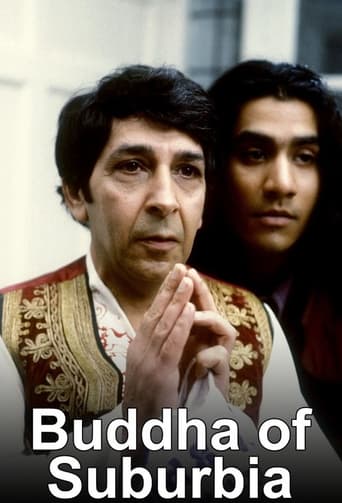
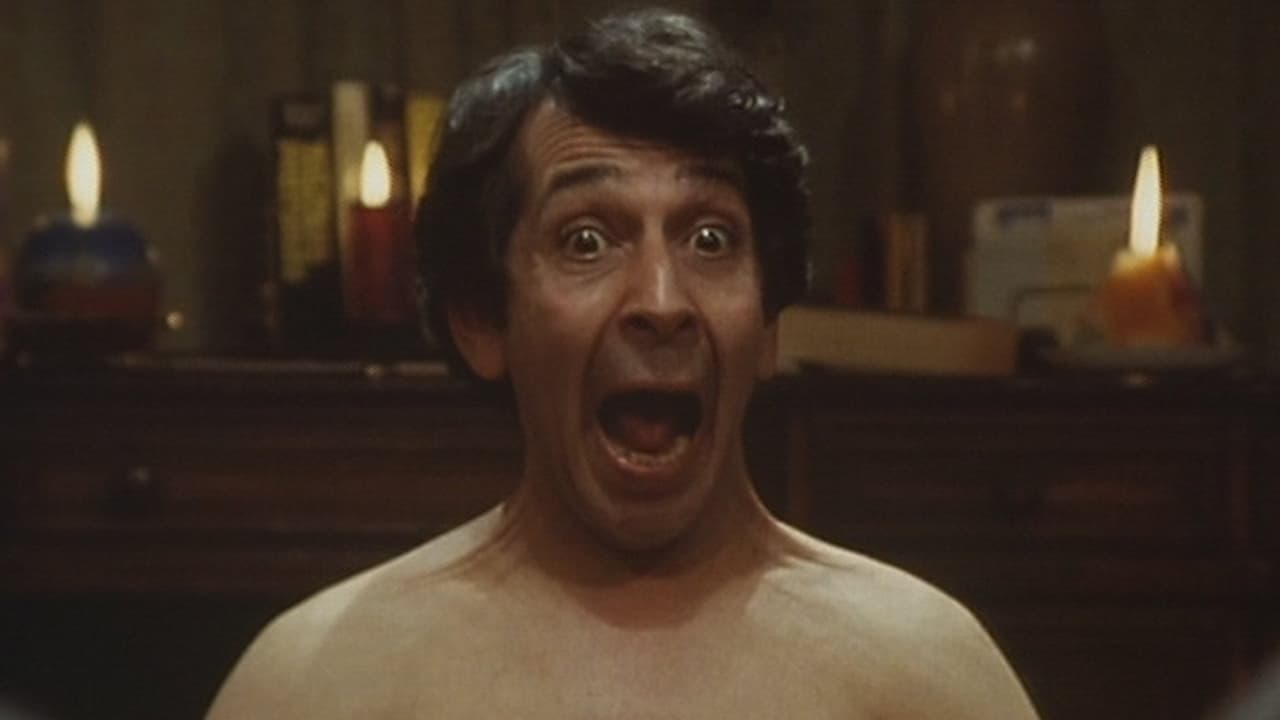
 AD
AD

